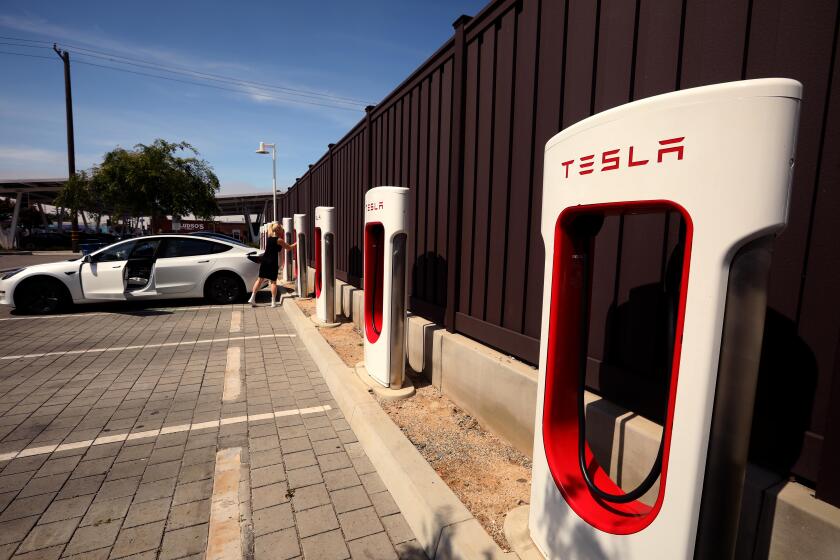Legal Dispute Over Classic Car’s Registration May Cost State $1 Billion
A 12-year-old dispute over the registration of a 1936 classic car could end up costing California taxpayers well over $1 billion, state officials said Friday after a court ruling that the Department of Motor Vehicles must pay refunds to 17 million used-car owners.
The ruling Wednesday by the 2nd District Court of Appeal in Los Angeles upheld a lower-court verdict in favor of Glendale attorney Patrick Woosley, the owner of a 1936 Auburn Speedster.
Lawyers for the state said they may ask the Court of Appeal to review its decision and will file an appeal with the California Supreme Court. No refunds will be made until all appeals are exhausted, which could take a year, state lawyers said.
Woosley filed a lawsuit in 1978 after being hit with what he considered unfair and discriminatory motor vehicle taxes and fees when he purchased the Auburn in 1976.
He contended that because his Auburn had an out-of-state registration when he bought it, he was forced to pay a use tax of $1,500. The use tax, comparable to the state’s 6% sales tax, was based on the Auburn’s $25,000 purchase price.
But had Woosley bought the car in California, the tax would have been only $6. Interviewed by telephone Friday, Woosley said he still has not received “a really good explanation” of why there was such a huge gap in taxes charged against cars registered in state and those registered out of state.
On top of the $1,500 use tax, the DMV rubbed more salt in the wound by requiring Woosley to pay a motor vehicle registration fee of $427. The fee would have been $2 had he bought the same car in California.
In ruling that the lopsided tax levies were unfair, the appellate court found that the DMV was wrong in charging taxes based on the last selling price of out-of-state vehicles. Instead, the state agency should have followed its formula for in-state cars, based on depreciated value of the original price, the court said.
The Auburn first sold in 1936 for $2,245.
A DMV spokesman offered no ready explanation Friday for the disparity in levies. He referred questions to the state’s lawyers.
State lawyers did not dispute the disparity. They said their defense is based on a belief that the DMV and the State Board of Equalization, which is responsible for the use tax, acted properly and legally in following the dictates of the Legislature.
Since the filing of the suit, the financial stakes have grown well beyond the actual out-of-pocket expenses that Woosley complained about in 1976.
Attorneys who pressed the class-action suit, which represents all motorists who bought used cars from private parties since 1974, are in line to receive $13.7 million in court-ordered fees from the state. Woosley himself is to receive a $1-million fee if he ultimately wins his case, but he contends that is too low and is seeking a higher amount.
And that is just the begining.
At the time of the initial ruling in Woosley’s favor, in 1985, it was estimated that purchasers of used cars since 1974 were due a collective $875 million in refunds. But Woosley estimates that the refunds now could total at least $1.4 billion because used-car transactions since 1985 now must be factored into the judgment, along with interest on the original judgment.
On top of that are administrative costs that would be incurred by the state in searching back through records on car transactions since 1974 to determine who is due a refund.
Speculating on the potential costs to the state, Cynthia Katz, assistant director of the state Department of Finance, said state officials were estimating “anywhere from $575 million to $3 billion.”
“We just don’t know how much it could cost at this point,” Katz said. She said there is no money set aside for the refunds. Any payments would probably have to be appropriated by the Legislature from general purpose tax revenues.



